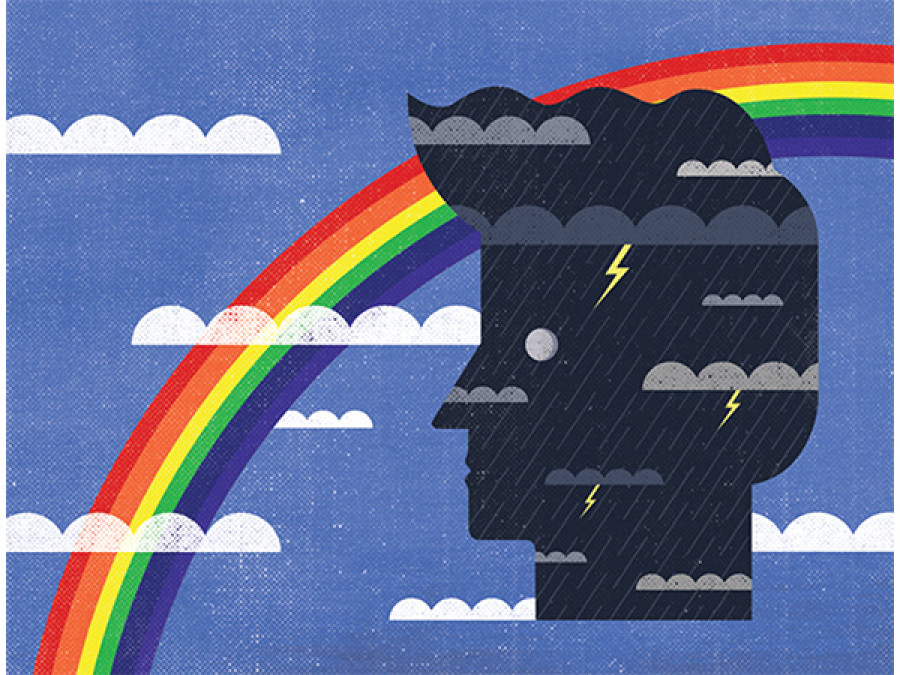Opinion
Diverse lives matter
The conventional narrative of minority groups is changing with more organisations and groups coming to their support
Subhanu Khanal
In the wake of the Great Earthquake , the media was abuzz with articles on how the state had spectacularly failed to respond to the crisis and manage the disaster. However, writers authoring such articles began with the flawed presumption that the state was somehow immune to the 7.9 magnitude quake and its countless aftershocks.
The state could have of course enforced the 1994 building codes which would have helped minimise damages from such a force majeure. However, the state consists of citizens and civil society, which incidentally are also governed by the state, who were both complicit in flouting building codes for various reasons ranging from negligence to rent-seeking behaviour. Highlighting the presence of citizens in both the bureaucracy and civil society ameliorates the understanding of the quake and the responses to it.
Case of Israel
By using the notion of citizenship as a tool of analysis, intricate nuances emerge within the present context that point to the diversity of the citizenry within the borders of Nepal and the diverse responses that are necessary from the state and the citizens for the diverse needs that exist within society. The Lesbian, Gay, Bisexual, Transsexual, Transgender, Intersex and Queer (LGBTIQ) community is one such diverse group that needs such arguments to be translated into a guideline that directs individual and state response to relief.
A news that grabbed the attention of the international media right after earthquake was Israel’s decision to airlift 52 Israelis out of Nepal on April 28. It was later revealed that these 52 Israeli nationals were gay couples and were in Nepal to access commercial surrogacy services. The incident of surrogacy that came into light revealed a new dimension of the relationship between Israel and Nepal, that of adoption. While this does raise deeper questions of the ethics of international surrogacy, it is worth asking why the Israeli couples were in Nepal to adopt in the first place. And the answer to the question is: surrogacy is legal in Israel but only for heterosexual couples. And although 69 percent of the population in Israel believe in legalising same-sex marriages, it is a country where same-sex unions do not have a legal standing.
Clearly, for the majority of the members of the LQBTIQ community, things do not seem to have progressed a lot. The judgment that is placed upon their bodies, that of deviancy, insufficiency and aberration, translates into judging them in every sphere of life, from parenting in the domestic realm to working in the public sphere. It should not be a matter of surprise if similar cognition informs individual and state response towards the LGBTIQ community.
Although the Supreme Court did legalise homosexuality in 2007 and recognised third gender in January this year, providing them with rights that seem light-years away for many in other South Asian countries like India, people from the community still suffer from social discrimination and are more vulnerable to risks. Many members lose all forms of social connections and networking once they come out to their families and express a will to live by being true to their inner self. Families disown them; friends they have known since childhood ostracise them.They stand to lose social and financial security.
Supporting diversity
One such place where you could hear similar stories after the quake was in a makeshift tent in the Sunder Mar neighbourhood of Kathmandu. The Blue Diamond Society had set up the tent there. As the organisation campaigns for the rights of Nepalis who are gays, bisexual, lesbian and intersex, you could meet people from the minority community slowly recovering from the crisis. The International Federation of Red Cross and Cres-cent Societies also helped Blue Diamond Society with much needed support for the minority group in the aftermath of the disaster.
With organisations and groups coming out to support the diverse needs and interests of the LGBTIQ community, the conventional narrative for the minority group—of being helpless victims or lucky survivors—is slowing being challenged. It is turning into an instance of being an expression of diversity in our already diverse society where people deserve and want as much respect, rights and power just as the other person or a group.
Khanal is a Hampshire College graduate




 14.24°C Kathmandu
14.24°C Kathmandu











